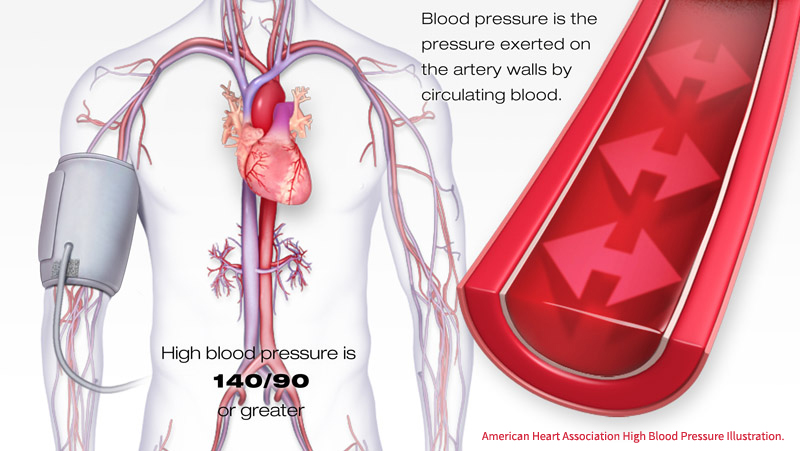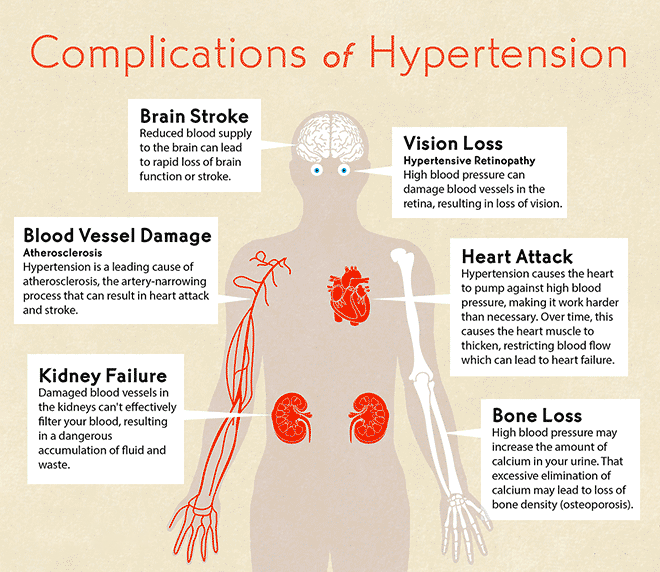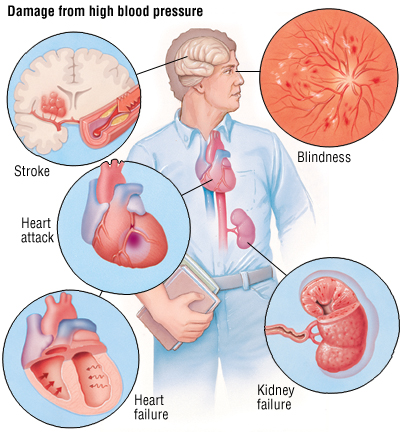Hypertension
Hypertension, Causes, Symptoms and Treatments
Many number of people living with high blood pressure (hypertension) is predicted to be 1.56 billion worldwide by the year 2025
In the US, near about 75 million people have high blood pressure, with more people dying of hypertension-related cardiovascular disease than from the next three deadliest diseases combined.
Control of hypertension has become a key national priority in the US as part of the Million Hearts initiative from the Department of Health and Human Services, which aims to prevent 1 million heart attacks and strokes in the US by 2017.3
What is Hypertension (high blood pressure)?
Blood pressure is the force exerted by the blood which is against the walls of blood vessels, and the magnitude of force exerted and depends on the cardiac output and the resistance of the blood vessels.
The blood flowing inside vessels exerts a force in opposition to the walls, this is called as blood pressure.
Hypertension (high blood pressure) is defined as having a blood pressure higher than 140 over 90 millimeter of mercury (mmHg), with a consensus across medical guiding principle.
This means the systolic reading (the pressure as the heart pumps blood around the body) is over 140 mmHg (millimeters of mercury) and/or the diastolic analysis (as the heart relaxes and refills with blood) is over 90 mmHg.
This threshold has been set to define hypertension for clinical convenience as patients experiences benefits once they bring their blood pressure below this level.
Hypertension, Its Causes and Symptoms
As acute stress, intense exercise and other factors can in brief elevate blood pressure even in people whose blood pressure is average, a diagnosis of high blood pressure requires several times readings showing high blood pressure more time.
The disease load of hypertension is a increasing problem worldwide, in part because of a quickly aging population. Other type contributors consist of lifestyle factors, such as:
- Physical inactivity
- Alcohol and tobacco use.
- A salt-rich diet associated with processed and fatty foods
Symptoms of hypertension
Hypertension itself is generally asymptomatic, meaning that patients do not practice any direct symptoms of the state. This is why High blood pressure is regularly referred to as “the silent killer,” as it can quietly causes injure to the cardiovascular system.
Hypertension can also lead to problems in the organs affected by high blood pressure. Long-term hypertension can cause complications throughout arteriosclerosis, where the formation of plaques results in narrowing of blood vessels.



